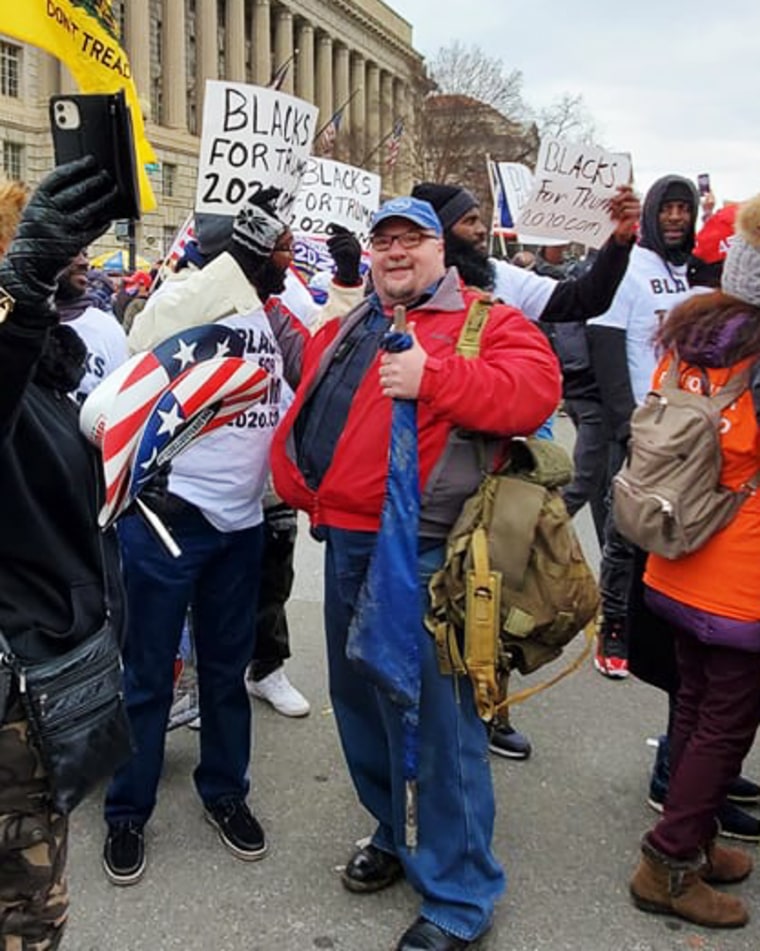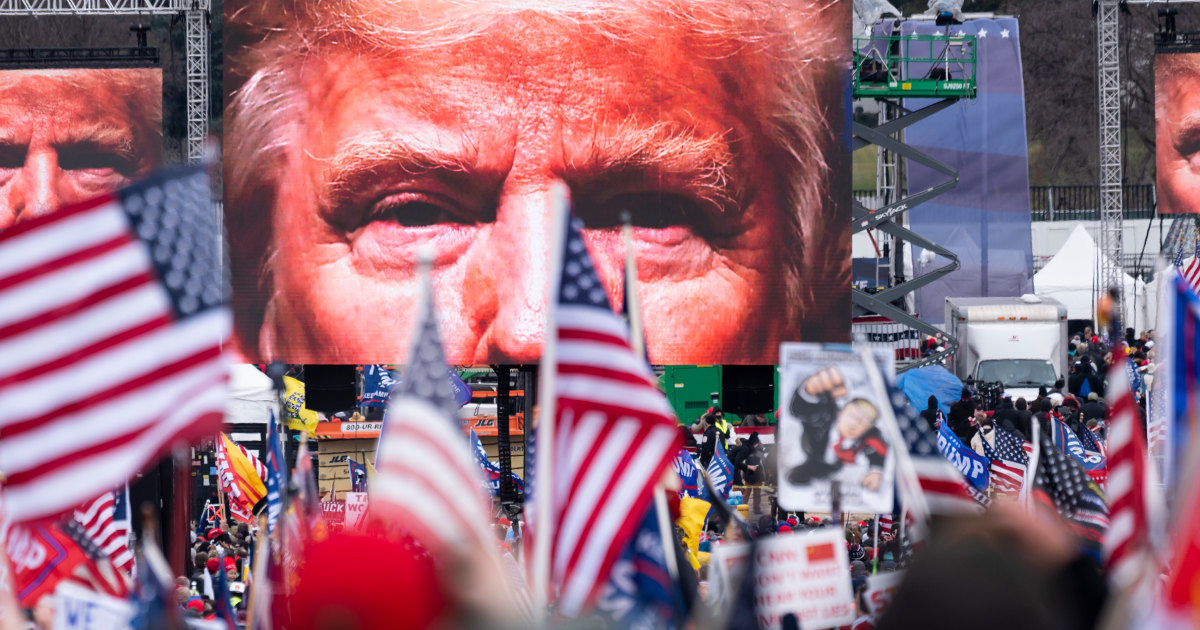“It’s our f—— house, brother!” the video appears to show Fischer saying that day. After an officer tells Fischer to turn around and leave, he appears to appeal to the officer to stand with them “as a patriot.”
“Take a knee! Take a knee!” members of the mob chanted as Fischer recorded on his cellphone.
Fischer, who is yet to go to trial, also faces charges for assaulting a police officer and entering a restricted building, among others. Those charges will not be affected by how the court rules on the obstruction count.
Trump has cited the Fischer case, including in his most recent filing at the Supreme Court concerning his bid to obtain presidential immunity for his actions seeking to overturn the election results. Oral arguments in that case take place on April 25.
‘Paying attention’
In Fischer’s case, the law at issue is Title 18, Section 1512(c)(2), of the U.S. Code, which criminalizes any effort to “corruptly” obstruct, influence or impede any official proceeding. Conviction can result in a prison sentence of up to 20 years.
The government says about 330 Jan. 6 defendants have been charged with violating that law.
Republican lawmakers including Sen. Tom Cotton, R-Ark., and Rep. Jim Jordan, R-Ohio, filed a brief in Fischer’s case saying the Justice Department is using the law as an “all-purpose weapon against perceived political opponents.”
The provision was enacted in 2002 as part of the Sarbanes-Oxley Act, a bill passed in the aftermath of the Enron accounting scandal. As such, defendants say it was written to address evidence tampering and was never intended to apply to an incident such as Jan. 6.
Fischer’s lawyers argue that the provision is limited in scope to evidence tampering, pointing to language in another part of the statute referring to records and documents. It therefore should not apply to Fischer’s actions, such as the alleged assault of a police officer.

Trump’s lawyers have made similar arguments that his alleged conduct is not covered by the obstruction law, saying in their brief in the immunity case that the statute “is stretched far beyond its natural meaning” when applied to Trump, who faces four charges in total.
In describing Trump’s alleged criminal acts, the election interference indictment focuses on his broad scheme to stay in power by urging Congress to reject election certifications that confirmed Biden’s victory. Trump and his allies instead sought to submit substitute certifications crafted by what have been dubbed “fake electors.”
Prosecutors argue Trump’s actions fit within the statute because he made false statements to members of Congress and others and submitted false documents.
Special counsel Jack Smith, who is prosecuting Trump, said in his latest brief in that case that no matter how the court rules in the Fischer case, “the Section 1512 charges in this case are valid.”
That is because unlike in Fischer’s case, Trump’s prosecution does involve an alleged conspiracy to tamper with documents, namely the effort to use “fraudulent electoral certifications rather than genuine ones” during the congressional proceeding to certify the outcome, Smith said.
Smith also referenced the brief filed by Fischer’s lawyers in the case being argued on Tuesday. They seek a narrow reading of the law that would ensure the charge against their client would be dismissed, but would appear to leave open the option of someone being prosecuted for “making false claims” or offering “false testimony.”
If the Supreme Court were to embrace that approach, Fischer could win, but Trump’s own charges could remain unaffected, said Richard Bernstein, a lawyer who filed a friend-of-the-court brief backing the government.
“All the parties in the Fischer case agree that the statute applies to submitting false statements and false documents. If the court agrees with that it doesn’t matter for Mr. Trump how they rule on Fischer’s particular case,” he added.
Fritz Ulrich, a federal public defender who is one of Fischer’s lawyers, said the language cited by Smith was merely aimed at buttressing their argument limiting the scope of the statute.
“We have not been paying attention to the prosecution of the former president,” he added.
Broad application of the statute
The incident at the heart of Fischer’s case happened around 3:25 p.m. on Jan. 6, at a point when police were beginning to regain some control of the building. Fischer, the government says, later bragged about his effort to push past the police line.
“Police line was 4 deep. I made it to level two,” Fischer allegedly wrote. The government also said Fischer “was enflamed and defiant” when he was arrested weeks after the attack and “had to be physically restrained” by his son after an FBI special agent showed up to a hearing Fischer attended.
Fischer’s lawyers claimed that Fischer was only inside the Capitol for a short period of time, and that he was mostly interested in getting cellphone footage.
“Mr. Fischer did not ‘attack’ anyone on January 6. He was inside the Capitol for a total of four minutes,” his attorneys wrote in a court filing last year.
In lower courts, various Jan. 6 defendants have echoed Trump and Fischer in saying the obstruction law has been applied too broadly.
U.S. District Judge Carl Nichols, who is overseeing Fischer’s case, initially dismissed the charge.
But the U.S. Court of Appeals for the District of Columbia Circuit ruled for the government last year, prompting Fischer to appeal to the Supreme Court. Two other Jan. 6 defendants, Edward Lang and Garret Miller, brought similar appeals, the outcome of which will be dictated by the ruling in Fischer’s case.
The Supreme Court, which has a 6-3 conservative majority, has often pushed back on the Justice Department’s broad application of criminal statutes.
One beneficiary of that approach was a Florida fisherman whose conviction under another provision of the Sarbanes-Oxley law was thrown out in a 2015 ruling.

